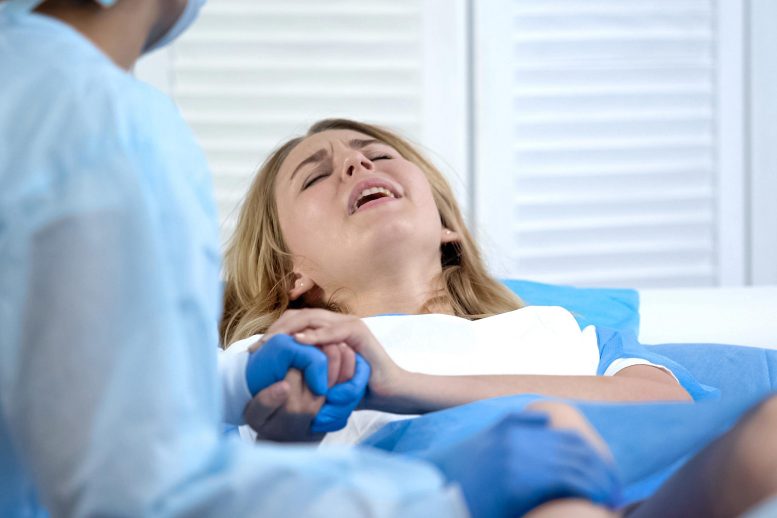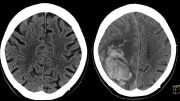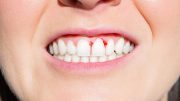
A groundbreaking study by the World Health Organization (WHO) and the University of Birmingham introduces E-MOTIVE, a novel solution that could significantly reduce deaths from childbirth-related bleeding, or postpartum hemorrhage (PPH). PPH, the leading cause of maternal mortality worldwide, affects 14 million women annually and results in approximately 70,000 deaths.
A trial of a set of interventions to manage postpartum hemorrhage, published in the New England Journal of Medicine, found a 60% reduction in heavy bleeding.
The E-MOTIVE solution, developed by WHO and the University of Birmingham, could significantly reduce childbirth-related bleeding and maternal mortality by employing a low-cost blood collection drape and bundling WHO-recommended treatments.
A new solution, known as E-MOTIVE, could provide a major breakthrough in reducing deaths from childbirth-related bleeding, according to a landmark study published on May 9 by researchers from the World Health Organization (WHO) and the University of Birmingham.
Postpartum hemorrhage (PPH) – defined as the loss of more than 500 mL of blood within 24 hours after birth – is the leading cause of maternal mortality worldwide. It affects an estimated 14 million women each year and results in around 70,000 deaths – mostly in low and middle-income countries – equivalent to 1 death every 6 minutes.
“Postpartum hemorrhage is scary, not always predictable, but absolutely treatable. Nonetheless, its impacts around the world are tragic,” said Dr. Pascale Allotey, Director of Sexual and Reproductive Health and Research at WHO and head of the United Nations’ Special Program of Research, Development and Research Training in Human Reproduction (HRP). “No woman should fear for her life when giving birth. Effective solutions to tackle postpartum bleeding need to be available and accessible so that all women can experience a safe birth and a healthy future with their families.”
The study, which involved over 200 000 women in four countries, found that objectively measuring blood loss using a simple, low-cost collection device called a ‘drape’ and bundling together WHO-recommended treatments – rather than offering them sequentially – resulted in dramatic improvements in outcomes for women. Severe bleeding – when a woman loses more than a liter of blood after birth – was reduced by 60%, and they were less likely to die.
There was also a substantial reduction in the rate of blood transfusions for bleeding, which is of particular importance in low-income countries where blood is a scarce and expensive resource.
“This new approach to treating postpartum hemorrhage could radically improve women’s chances of surviving childbirth globally, helping them get the treatment they need when they need it,” said Professor Arri Coomarasamy, who led the trial and is the Co-Director of the WHO Collaborating Centre on Global Women’s Health at the University of Birmingham. “Time is of the essence when responding to postpartum bleeding, so interventions that eliminate delays in diagnosis or treatment should be game-changers for maternal health.”
Currently, a major challenge in responding to PPH is that it is often detected too late to respond effectively. Most providers use visual inspection to assess bleeding, which tends to underestimate blood loss and can lead to life-threatening delays in treatment. When treatment is provided, this is typically done in a sequential manner with gaps between each intervention – costing more time if the first options are not effective.
The recommended E-MOTIVE package includes early and accurate detection of PPH using a blood-collection drape. This is complemented by an immediate treatment bundle where indicated, including uterine massage, medicines to contract the womb and stop the bleeding, intravenous fluid administration, an examination and, when needed, escalation to advanced care. In the trial, the E-MOTIVE intervention was supported with an implementation strategy consisting of specific training, PPH trolleys or carry cases, engagement of local champions, audits and feedback. All components of the E-MOTIVE intervention can be performed by midwives.
This research responds to one of the top research priorities identified by more than 130 experts from over 50 countries at the first Global Summit on PPH convened by WHO and HRP in March this year. The Summit marked the start of a collaborative global initiative aiming to substantially reduce the burden of PPH and its consequences in low- and middle-income countries.
The main results of this study were published on May 9 in the New England Journal of Medicine. The parallel-cluster randomized trial was a partnership between the WHO Collaborating Centre on Global Women’s Health at the University of Birmingham, United Kingdom, and WHO, with the study conducted in 80 hospitals across Kenya, Nigeria, South Africa and Tanzania.
Reference: “Randomized Trial of Early Detection and Treatment of Postpartum Hemorrhage” by Ioannis Gallos, D.M.S., M.D., Adam Devall, B.Med.Sci., Ph.D., James Martin, Ph.D., Lee Middleton, M.Sc., Leanne Beeson, B.Sc., Hadiza Galadanci, F.R.C.O.G., Fadhlun Alwy Al-beity, M.D., Ph.D., Zahida Qureshi, M.B., B.S., M.Med., G. Justus Hofmeyr, M.B., B.Ch., D.Sc., Neil Moran, B.M., B.Ch., Sue Fawcus, M.B., B.S., Lumaan Sheikh, F.C.P.S., M.R.C.O.G., George Gwako, M.B., Ch.B., Ph.D., Alfred Osoti, M.B., Ch.B., Ph.D., Ashraf Aswat, B.Sc., Kristie-Marie Mammoliti, M.Sc., Kulandaipalayam N. Sindhu, M.B., B.S., M.D., Marcelina Podesek, M.Sc., Isobelle Horne, B.A., Rebecca Timms, M.Res., Idnan Yunas, M.B., B.Chir., D.C.H., Jenipher Okore, B.Sc., Mandisa Singata-Madliki, Ph.D., Edna Arends, B.A., Aminu A. Wakili, M.B., B.S., Ard Mwampashi, B.A.P.S&P.A., Sidrah Nausheen, M.B., B.S., Shah Muhammad, M.B., B.S., M.P.H., Pallavi Latthe, M.B., Ch.B., M.D., Cherrie Evans, Dr.P.H., C.N.M., Shahinoor Akter, Ph.D., Gillian Forbes, Ph.D., David Lissauer, M.B., Ch.B., Ph.D., Shireen Meher, M.B., B.S., M.D., Andrew Weeks, M.B., Ch.B., M.D., Andrew Shennan, M.B., B.S., M.D., Anne Ammerdorffer, Ph.D., Eleanor Williams, M.Sc., M.A., Tracy Roberts, Ph.D., Mariana Widmer, M.Sc., Olufemi T. Oladapo, M.D., M.P.H., Fabiana Lorencatto, Ph.D., Meghan A. Bohren, Ph.D., M.S.P.H., Suellen Miller, Ph.D., M.H.A., Fernando Althabe, M.D., Metin Gülmezoglu, M.D., Ph.D., Jeffrey M. Smith, M.D., M.P.H., Karla Hemming, Ph.D., and Arri Coomarasamy, M.B., Ch.B., M.D., 9 May 2023, New England Journal of Medicine.
DOI: 10.1056/NEJMoa2303966
The E-MOTIVE project was supported by a grant from the Bill & Melinda Gates Foundation.









Be the first to comment on "E-MOTIVE: New Lifesaving Solution Dramatically Reduces Severe Bleeding After Childbirth"